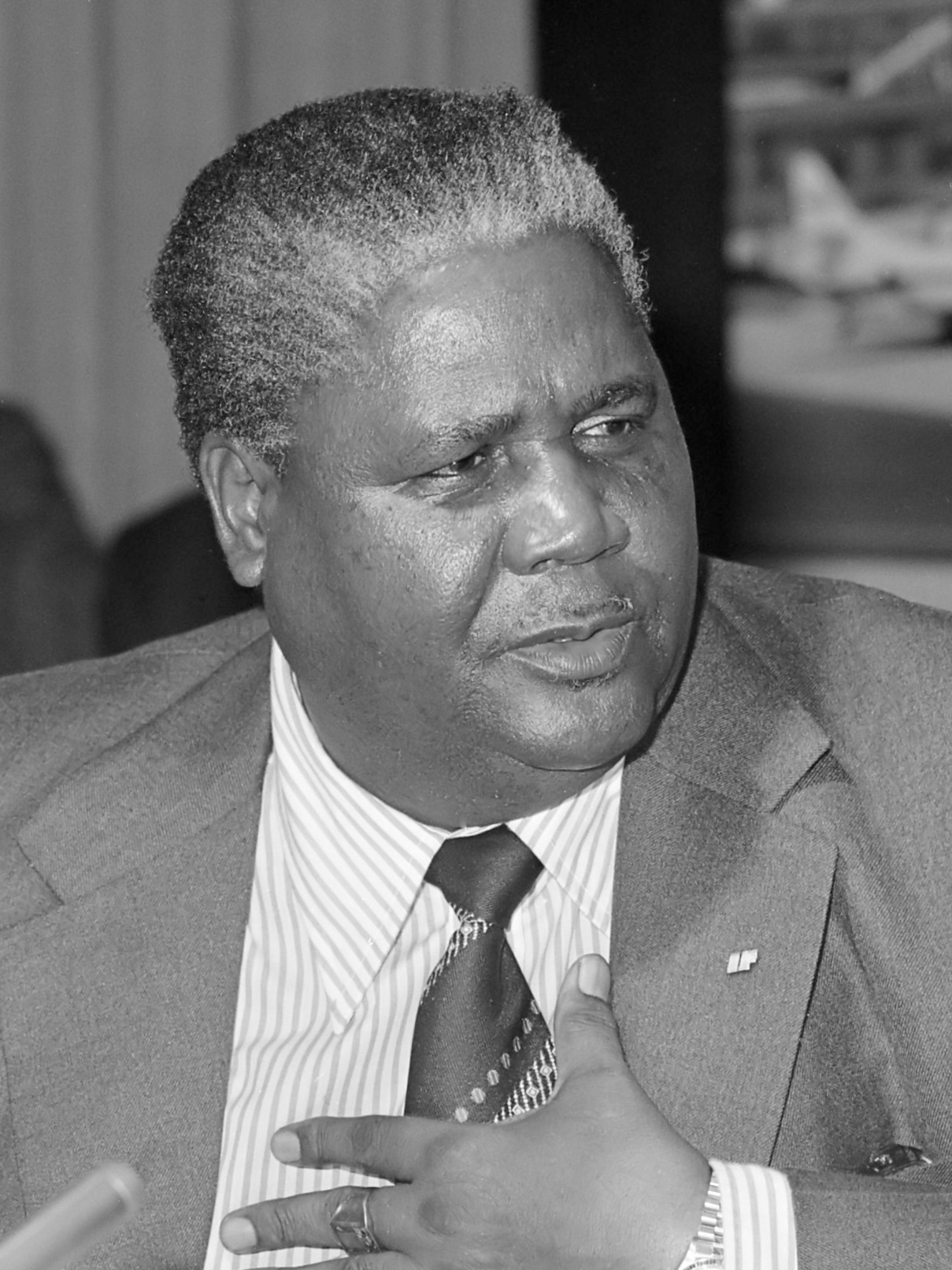Joshua Mqabuko Nyongolo Nkomo was a Zimbabwean anti-colonialist revolutionary and politician who was vice-president of Zimbabwe from 1990 to his death in 1999. Nkomo was born on June 19, 1917 in what was then Matabeleland, Rhodesia into a family where he had eight siblings. After completing his primary education in Southern Rhodesia, he enrolled at Adams College and the Jan H. Hofmeyr School of Social Work in South Africa.
In 1947, Nkomo became organizing secretary of the Rhodesian African Workers’ Union. In 1948, Nkomo became one of the first black Africans to be given a senior managerial office in the Rhodesian Railways. Starting as a welfare officer, Nkomo soon became the elected president of the African Railway Employees Association, one of the earliest workers’ unions to emerge in Southern Rhodesia.
In 1952 Nkomo was elected president of the struggling Southern Rhodesia African National Congress (SRANC), a nationalist organization seeking black political participation in the governing of the then British colony. In February 1959, the SRANC was banned by the Southern Rhodesian parliament under the newly passed Unlawful Organizations Act. Nkomo was traveling when this act was passed and managed to escape the mass arrests which followed. He went into self-exile in London and was elected president of the new, more radical, New Democratic Party (NDP) upon his return to Southern Rhodesia. The colonial government responded by banning the NDP in September 1961.
Ten days later Nkomo and his fellow leaders, including Robert Mugabe, formed the more militant Zimbabwe African People’s Union (ZAPU). ZAPU oversaw the formation of the Zimbabwe People’s Revolutionary Army (ZIPRA) – a guerrilla army that received training from the Soviet Union and its allies.
ZAPU was banned in September 1962, its leaders were arrested while Nkomo was in Lusaka, Northern Rhodesia. Nkomo remained abroad during this period to establish a government in exile. When he returned, he was sent to a detainment camp at Gonakudzinwa for ten years starting April 1964. While in exile, Nkomo continued to lead ZAPU and ZIPRA until ZAPU split in 1963, the party split.
The Lancaster House Peace talks held in 1979 highlight Nkomo’s pivotal role in the independence of Zimbabwe. The talks came as a result of ceasefire calls by the Rhodesian Government. It was within these talks that Nkomo and other nationalist leaders insisted on the one man, one vote system for independent Zimbabwe. This finally happened in March 1980, when elections were held which allowed black Rhodesians to vote for the first time.
Although Nkomo’s party only won 20 seats, African representative held more than 75% of parliament seats with, Nkomo’s ZAPU in control of 24% of the total.
Afterwards, Nkomo faced years of political persecution from Robert Mugabe’s ruling party – Zimbabwe African National Union-Patriotic Front (ZANU-PF). The persecution ended in December 1987, when he singed the Unity Accord allowing ZANU-PF to swallow Nkomo’s PF-ZANU. Robert Mugabe appointed Nkomo as vice-president of Zimbabwe in 1990, although he was essentially a figurehead, he held the role until he died of prostate cancer in Harare, Zimbabwe on July 1, 1999 at the age of 82.

